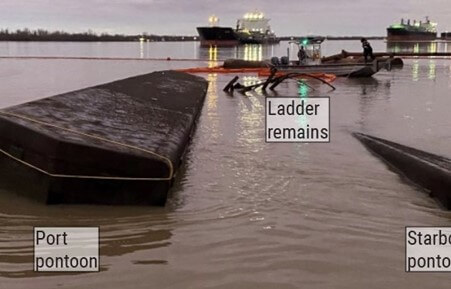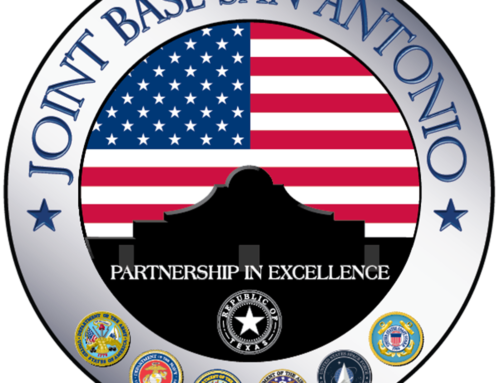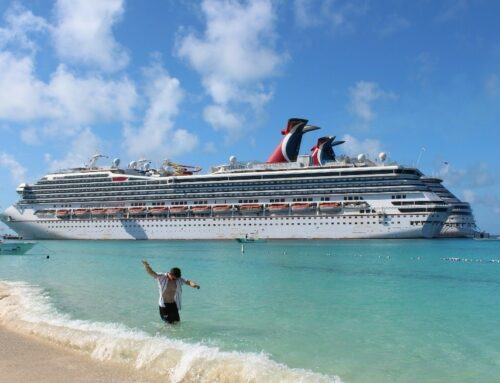Catastrophic Capsizing of Mississippi River Dredge Caused by Lack of Safety Standards
The National Transportation Safety Board (NTSB) released its findings on the capsizing of the WB Wood, a non-propelled dredging vessel, which overturned on the Mississippi River early on January 16, 2023. The incident, which resulted in a $1.5 million property loss and a spill of 5,500 gallons of oil, was attributed to the company’s failure to enforce regular checks of below-deck compartments.
The Incident Unfolds
The WB Wood had been engaged in dredging operations for nine days, transferring sand from the riverbed to a pit on the western bank of the Mississippi River. Two hours before the vessel capsized, the dredge’s leverman noticed the vessel listing, or tilting, to the starboard side. Upon inspection, he discovered a starboard storage space inundated with water. Despite his attempts to drain the space using a portable pump, the inflow of water outpaced the pump’s capacity and overwhelmed the vessel.
 Tragically, post-incident investigations revealed a critical oversight: a pipe leading to the starboard storage space was open, and its overboard check valve was missing. This error allowed water to flood the storage space, leading to a cascade of failures as compromised watertight bulkheads within the hull allowed the space to flood.
Tragically, post-incident investigations revealed a critical oversight: a pipe leading to the starboard storage space was open, and its overboard check valve was missing. This error allowed water to flood the storage space, leading to a cascade of failures as compromised watertight bulkheads within the hull allowed the space to flood.
The Root Cause: Neglected Safety Checks
The NTSB report highlighted a glaring lapse in safety protocols. Two days prior to the capsizing, the leverman had noticed water in the starboard storage space, but was unable to pinpoint its source. Without mandatory checks or protocols for investigating potential leaks or flooding in hull compartments, the initial signs of trouble were overlooked.
This oversight proved disastrous, with the absence of procedural guidelines for routine inspection of tanks and voids adjacent to the vessel’s hull allowing the flooding to go unnoticed until it was too late. The NTSB emphasized that regular inspections could have identified the unsecured pipe and missing check valve, preventing the catastrophic flooding that compromised the vessel.
In its report, the NTSB issued several recommendations to prevent similar incidents in the future:
- Regular Inspections: Vessel crews should conduct routine checks of all tanks and voids adjacent to the hull to detect any signs of water ingress or structural compromise early.
- Procedural Guidelines: Clear protocols must be established for identifying, preventing, and addressing potential leaks and flooding. This includes regular maintenance checks and immediate action plans for detected anomalies.
- Low-Level Bilge Alarms: Installing low-level bilge alarms in voids and other critical spaces can provide early warning of water ingress, allowing for timely intervention before flooding becomes unmanageable.
The capsizing of the WB Wood emphasizes the need for stringent safety protocols and regular maintenance checks to ensure the integrity of vessels operating in demanding environments. By adhering to the NTSB’s recommendations, the maritime industry can mitigate the risks of such incidents, safeguarding lives, property, and the environment.
We at the Herd Law Firm are proud to fight for seamen, maritime workers and passengers in all types of personal injury claims. As maritime personal injury attorneys located in northwest Houston, we never waver in our commitment to help these maritime workers and their families when they are injured.
5/20/2024
Read the NTSB Report here: http://marine%20investigation%20report%2024-08/










